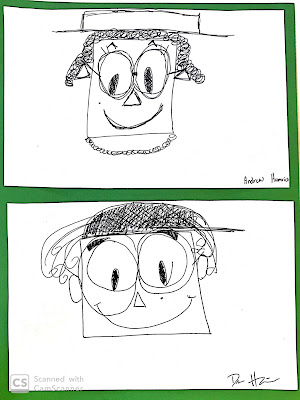Mock Interview Experience
Yesterday I encountered an experience that was new to me. In my leadership development class we had the opportunity to participate in mock interviews. This was new to me as all of my jobs up to this point in my life were attained through common friendships and referrals. My interview for occupational therapy school had a different feel that the mock interview did. Overall, I feel that the interview went okay. I think that I was able to articulate well and and appropriately answer the questions, however there were several things that happen in which I did not know I was doing until I reviewed my video footage. My preparations for the interview were nothing drastic. I reviewed the online resources about common questions online and thought how I might answer them. However, I did not necessarily come up with exact answers to those questions and I thought it might hinder my ability to answer any unexpected questions. One thing that was different than I expected about this interview was that...
